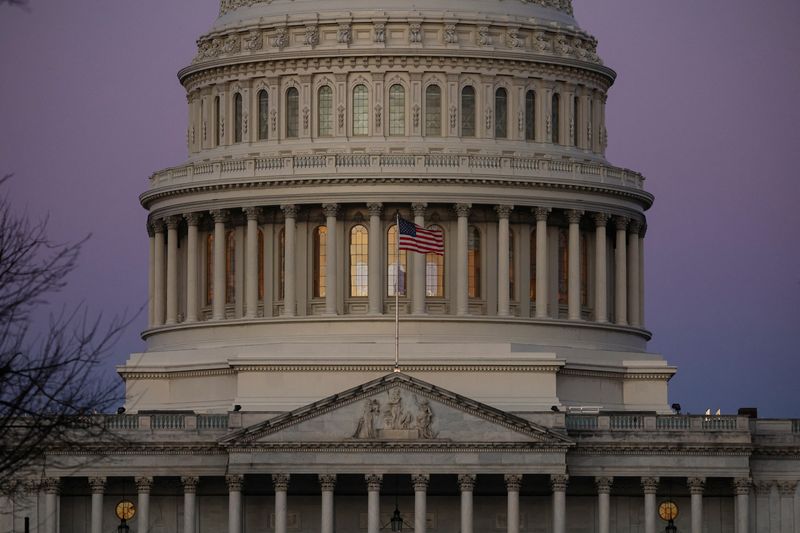By David Morgan and Richard Cowan
WASHINGTON (Reuters) -The U.S. Congress on Tuesday appeared to be on the cusp of an agreement to allocate billions of dollars in emergency aid for Ukraine, fund the federal government through Sept. 30, and provide resources to fight the COVID-19 pandemic.
Sweeping legislation, awaiting final approval from Democratic and Republican congressional leaders, was expected to provide $1.5 trillion for defense and nondefense discretionary spending, as much as $14 billion to help Ukraine respond to Russia's invasion and about $15 billion for COVID.
"Republicans and Democrats are very, very close to finalizing the agreement. I expect there will be text released in a few hours," Senate Majority Leader Chuck Schumer told reporters at a midafternoon news conference.
Schumer's Republican counterpart, Senate Minority Leader Mitch McConnell, said he expects $14 billion in humanitarian and military aid for Ukraine to include loan guarantees to help NATO allies including Poland purchase U.S. warplanes to replace warplanes transferred to Ukraine.
"We need to provide them loan guarantees and assurance that they will be able to get a way to backfill the loss of those MiGs for their own security," McConnell told reporters.
There appeared to be a disagreement over the sum of Ukraine aid. Schumer said it would amount to less than $14 billion. But either way, the figures represent an increase from last week's $10 billion request from the White House.
Congress faces a midnight Friday deadline for passing the legislation.
House of Representatives Majority Leader Steny Hoyer told reporters earlier Tuesday that his chamber is aiming to debate and pass legislation to fund the government through Sept. 30 on Wednesday. But he left open the possibility of a short-term stop-gap bill being needed if legislation providing full government funding is not completed in time.
If Democrats fail to release the legislation on Tuesday, the task of enacting it ahead of the Friday deadline would become more complicated, though not impossible, according to a source familiar with negotiations.

This week's floor schedule has already been truncated by a planned Wednesday retreat for Democrats. And Republicans, who have demanded time to review the mammoth legislation before voting, could resist any attempt to act immediately after the bill's release.
Democrats hoped to use strong public support for helping Ukraine to pressure Republicans into passing the sweeping "omnibus" bill funding the government, after four bills this fiscal year that extended the previous year's funding levels temporarily.